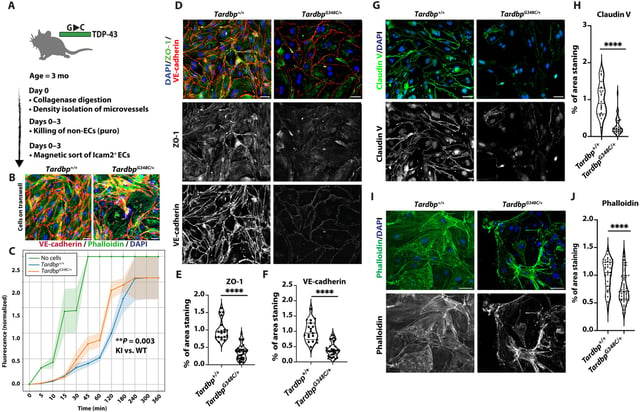Overview
- Mutations in the TARDBP gene reduce TDP-43 protein levels in endothelial cells, impairing the blood-brain barrier and allowing harmful substances to infiltrate the brain.
- Mouse models with TARDBP mutations or endothelial-specific TDP-43 deletion exhibit blood-brain barrier defects, brain inflammation, and behavioral symptoms of neurodegeneration.
- The study highlights that TDP-43 dysfunction extends beyond neurons, implicating endothelial cells in the progression and variability of neurodegenerative diseases.
- Researchers are investigating non-genetic factors that disrupt TDP-43 in endothelial cells and whether its dysfunction spreads between vascular and neural cells.
- Therapeutic strategies targeting vascular health are being explored to complement neuron-focused treatments for ALS, frontotemporal dementia, and Alzheimer’s disease.
